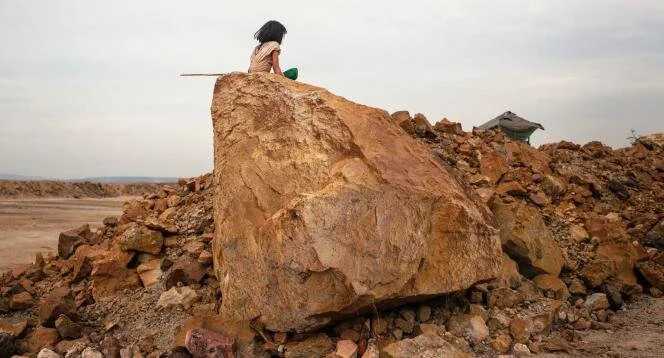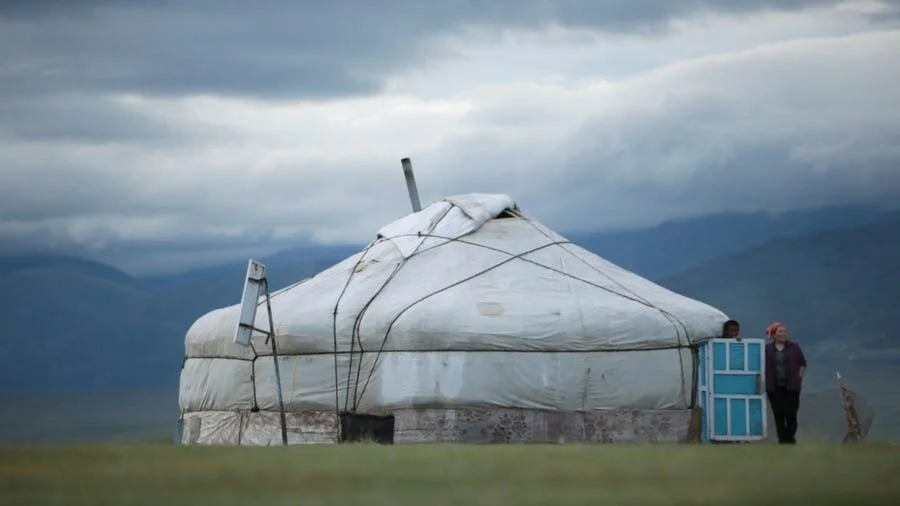Selected Articles and Media Appearances
Natural Resources Governance Institute
Women make up only 22 percent of the oil and gas workforce and 14 percent of the industrial mining workforce. This article explores the history of legal restrictions on women’s work and the implications of prohibitions.
Business Insider
Aubrey Menard gives an expert interview about the way Mongolia has handled the coronavirus and what it has meant for its economy.
Natural Resources Governance Institute
Because data is so seldom disaggregated by gender, it is difficult to truly assess the impacts of extractives policies and harmful practices are likely replicated.
New America
An adapted excerpt from Young Mongols: Forging Democracy in the Wild, Wild East
New America
Congress should pursue cashmere imports with an eye towards sustainability.
New America
In the face of an existential threat to humanity, Trump has continued not only to remain inactive in the fight against climate change, but to aggressively roll back environmental protections and accelerate the doomsday clock.
The Washington Post
The Mongolian parliament’s fall legislative agenda includes debate of a proposed draft law on nonprofit legal entities. The draft law shares provisions used in recent laws to restrict civil society in Russia, Poland and Hungary.
South China Morning Post
Mongolian capital Ulan Bator set to demolish Soviet-era buildings – activists fight to save them and scent corruption
Al Jazeera
Police bring charges against far-right group after an attack on a transgender sex worker investigated as a hate crime.
New York Public Radio - The Brian Lehrer Show
Aubrey Menard, international election monitor, discusses her recent New York Times column comparing the United States to other countries regarding voting rights for felons.
New York Times
As the Democratic candidates debate whether current and former prisoners should be allowed to vote, it’s worth recalling that many other countries make it easy for incarcerated people to do it.
The Washington Post
Last week, the Mongolian parliament stunned pro-democracy advocates when it voted to remove the safeguards protecting the independence of its courts and its anti-corruption agency. In doing so, the parliament helped further President Khaltmaa Battulga’s ongoing attempt to consolidate power.
Al Jazeera
Rights groups have been campaigning against the horse racing that employs a large number of child jockeys.
Inside Sources
As Americans, we take our access to clean, potable drinking water for granted. However, disturbing new findings by the Environmental Protection Agency should make us leery when drinking what comes out of our taps.
The Diplomat
Myanmar’s poorly-regulated jade and gemstones production means up to two-thirds of all the country produces is possibly not subjected to tax, a new report by the Natural Resource Governance Institute (NRGI) reveals. Experts believe that this, as well as chronic undervaluing of registered jade and gemstones, costs the country billions of dollars in lost tax revenue.
Al Jazeera
The Mongolian parliament this week voted to oust House Speaker Miyegombyn Enkhbold, in an unprecedented move capping a tumultuous two months in the country's politics involving multiple corruption scandals, protests and party infighting.
South China Morning Post
Khulan Davaadorj, the CEO of Mongolia’s Lhamour organic skincare company, is determined to use her country’s natural abundance to build a sustainable business using seabuckthorn and other ingredients that are less common elsewhere; the company also uses pine tar, yak milk, sheep tail fat and horse oil – products that are sustainable thanks to Mongolia’s climate, bountiful livestock, and long tradition of nomadic herding.
Pacific Standard and New America
During his tenure, the administration has blocked research, prioritized corporations over citizens, and put endangered species at even greater risk.
South China Morning Post
Mongolian Prime Minister Ukhnaagiin Khurelsukh last week survived a vote of no confidence – but now he must juggle party and opposition interests to retain power and fulfill new promises to fight corruption, and his success or failure in doing so will have lasting implications for the country.
The Establishment
In Mongolia, LGBTQ activists are leveraging political transition to create progressive change.
Pacific Standard and New America
Experiencing early wage discrimination can set women back again and again, as small-percentage raises prevent them from ever truly breaking the cycle.
Politico
Thanks to an 1872 law, Trump's decision to shrink two national monuments will give a huge windfall to miners.
Pacific Standard and New America
Long before assuming office, President Donald Trump established himself as a climate change denier, one firmly opposed to most legislation aimed at environmental protection. In his first year in office, he's shown himself to be determined, yet somewhat ineffectual, at rolling back environmental protections put in place by former administrations.
Ms. Magazine
While one might not think of feminist activism as sitting in a library, slogging through innumerable manuscripts, Kukil has proven her commitment to the promotion of women’s voices in dedicating her career to making their stories visible and accessible.
New America
Last Thursday, U.S. Energy Secretary Rick Perry, who’d recently returned from a trip to Africa, asserted that expanding fossil fuel production is key to preventing sexual violence against women on the continent.
New America
Transparency in the United States’ extractive sector has taken yet another step backward under the Trump administration. On Nov. 2, the United States announced its intention to leave the Extractive Industries Transparency Initiative, or EITI.
Ms. Magazine
With history’s emphasis on the pursuits of Mongolian men, the position of women in modern day Mongolian society may seem surprising. Compared to other countries at its level of development, women’s rights are fairly advanced.
Pacific Standard and New America
Right within arm's reach of Vladimir Putin and his authoritarian rule over Russia is another, perhaps unfamiliar dictator: Ramzan Kadyrov, the head of Chechnya, a long-contested federal republic of the Russian Federation. Kadyrov has been accused of human rights abuses and war crimes—and, most recently, he's turned his corrosive gaze to the LGBTQ community.
American Center for Mongolian Studies
Following a brutally cold winter, the first March day that the temperature broke freezing, Mongolians rejoiced by spending the day outdoors. Young mothers lounged outside at the local ski resort, breastfeeding bundled babies while their older children played on the slopes.
The Diplomat
In 1990, Mongolia’s peaceful, democratic revolution ushered unprecedented press freedom into the small country. In the intervening 26 years, the media has expanded rapidly, currently boasting nearly 500 media outlets for a population of three million.
Huffington Post
LGBTQI life in Mongolia is probably better than you imagine it to be. Credit goes to the activism of the LGBT Center and its President, Anaraa Nyamdorj. This video describes the challenges facing the community, their successful advocacy, and their optimistic view of Mongolia’s future.
Open Democracy
On Friday, November 13, S. Erdene, the head of the Mongolian Labor Union ‘Solidarity’ (Ev Sanaany Negdel) called a press conference to discuss a recent change in contract for workers at Mongolia’s Tavan Tolgoi mine, one of the largest coal mines in the world. After delivering his remarks, S. Erdene doused himself in flammable liquid and lit himself on fire.


































